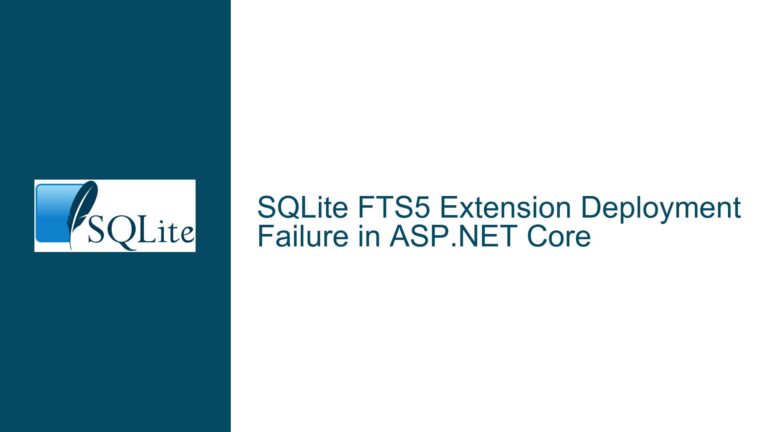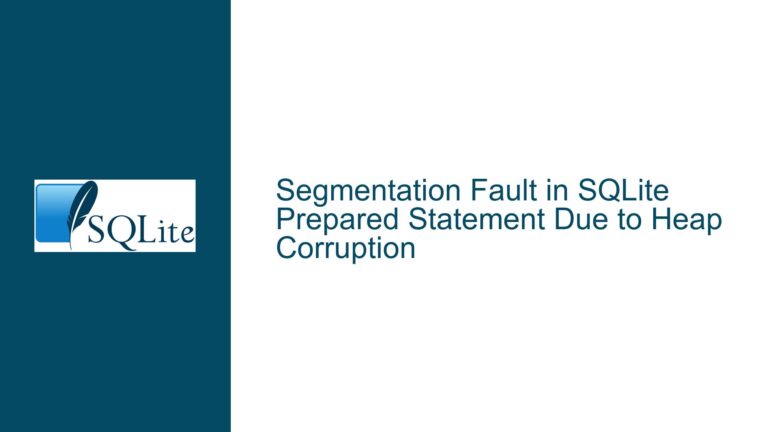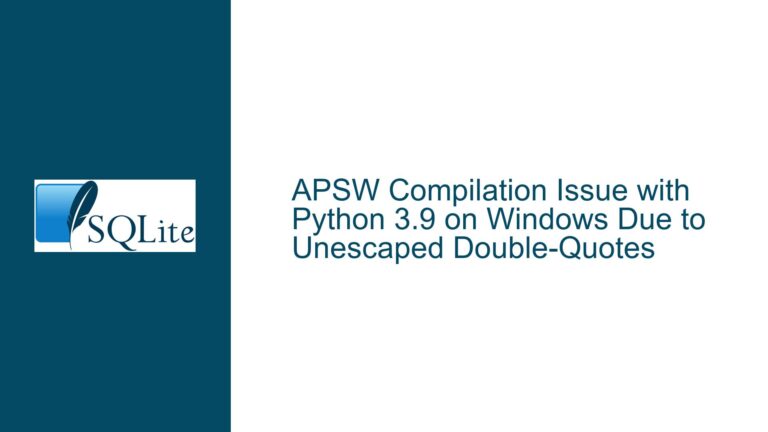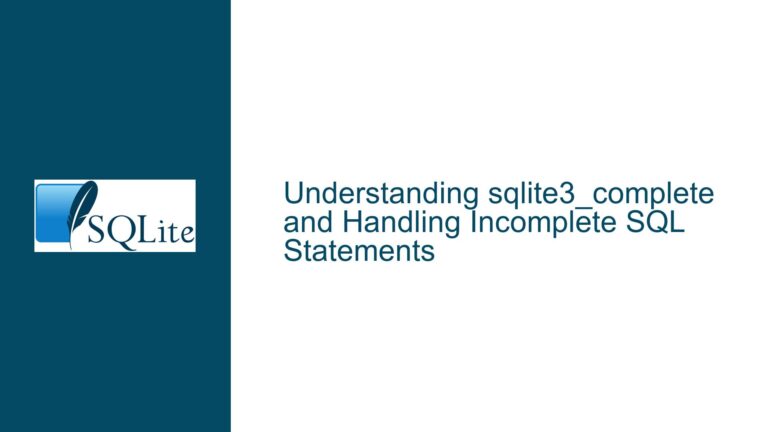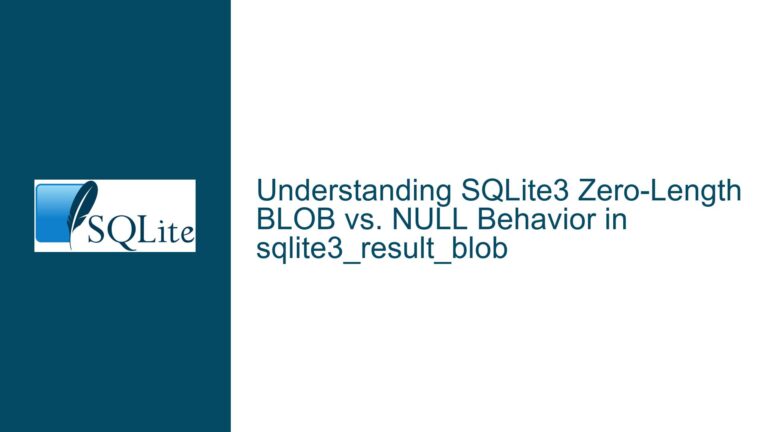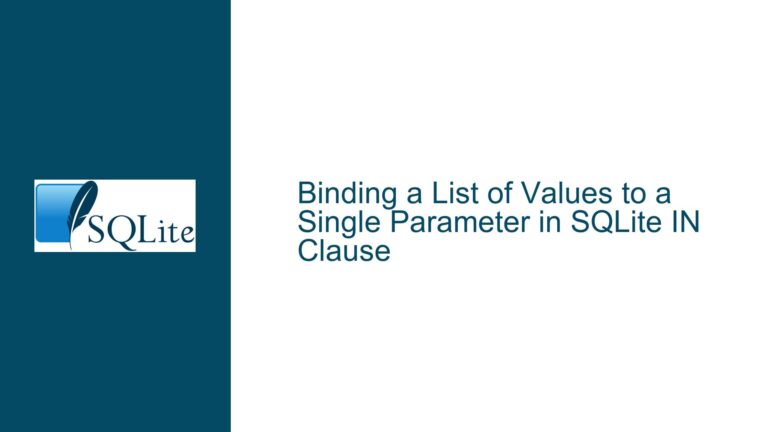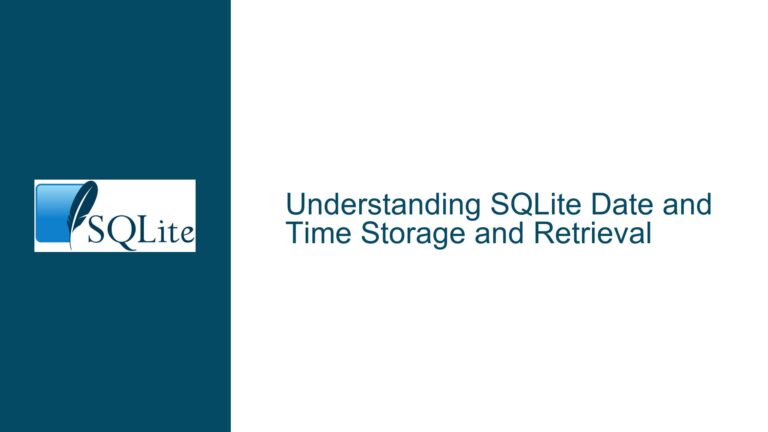SQLite FTS5 Extension Deployment Failure in ASP.NET Core
FTS5 Extension Works Locally but Fails on Host Deployment When working with SQLite’s FTS5 extension in an ASP.NET Core web project, it is not uncommon to encounter scenarios where the extension functions perfectly on a local development machine but fails to operate correctly after deployment to a hosting environment. This discrepancy often stems from differences…
